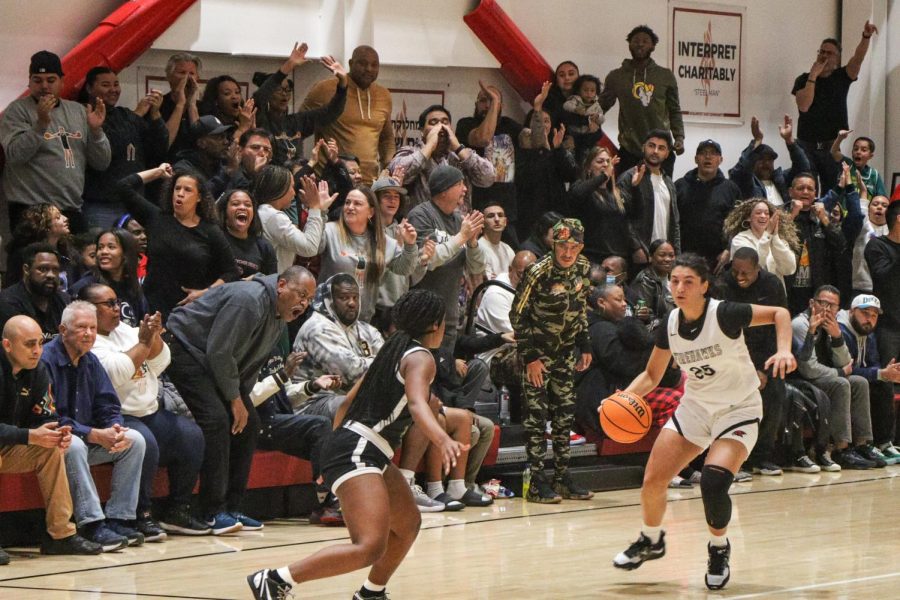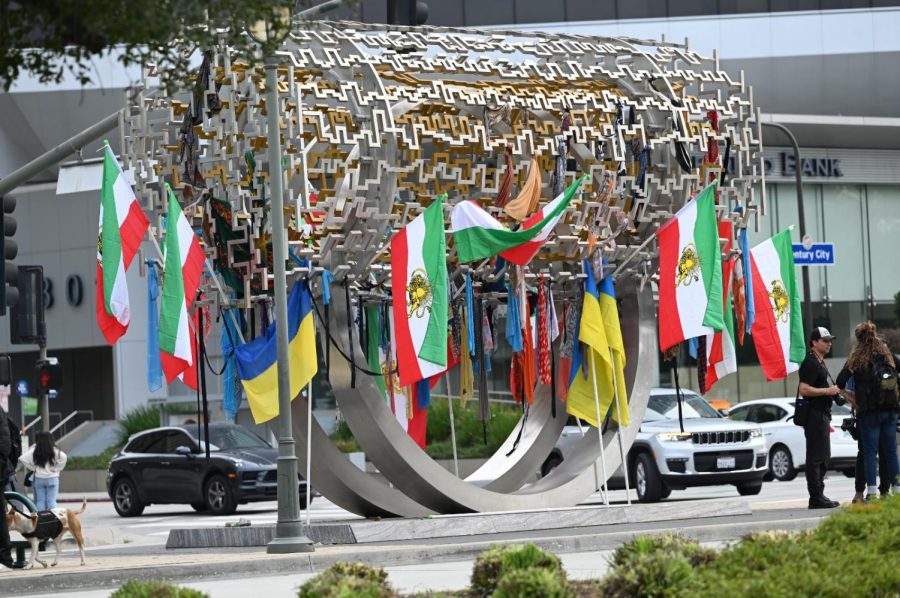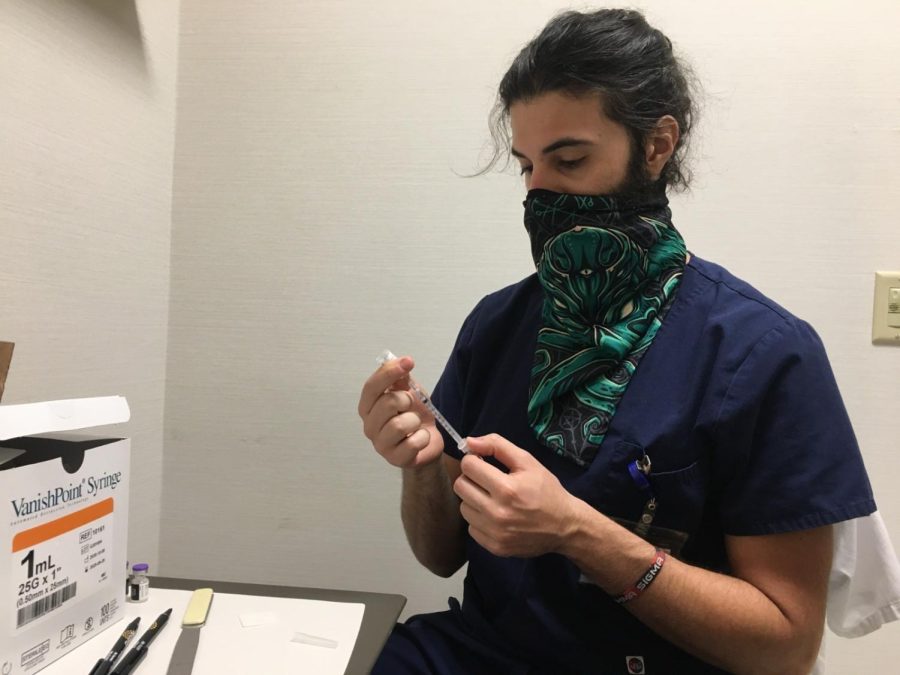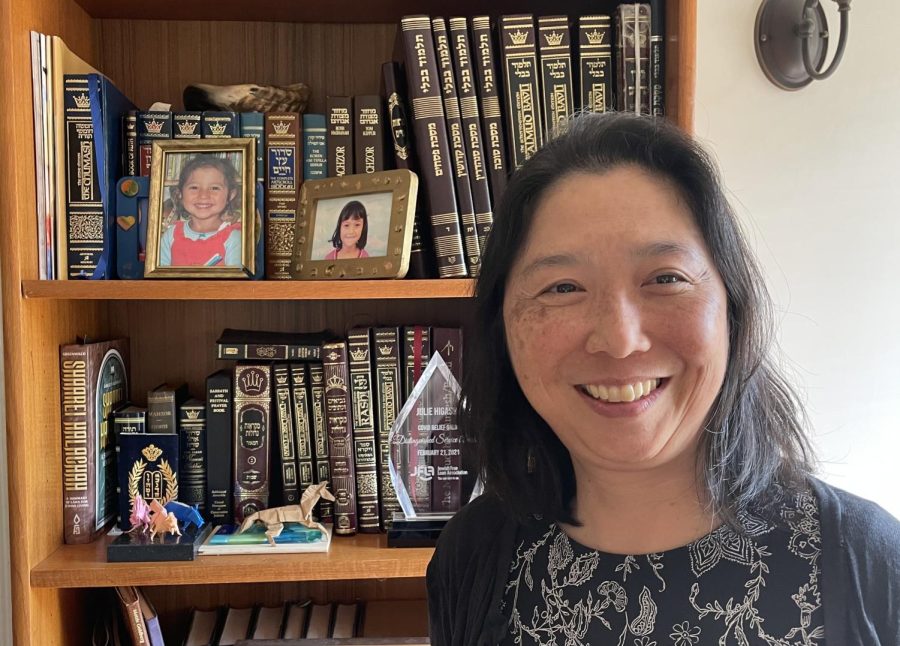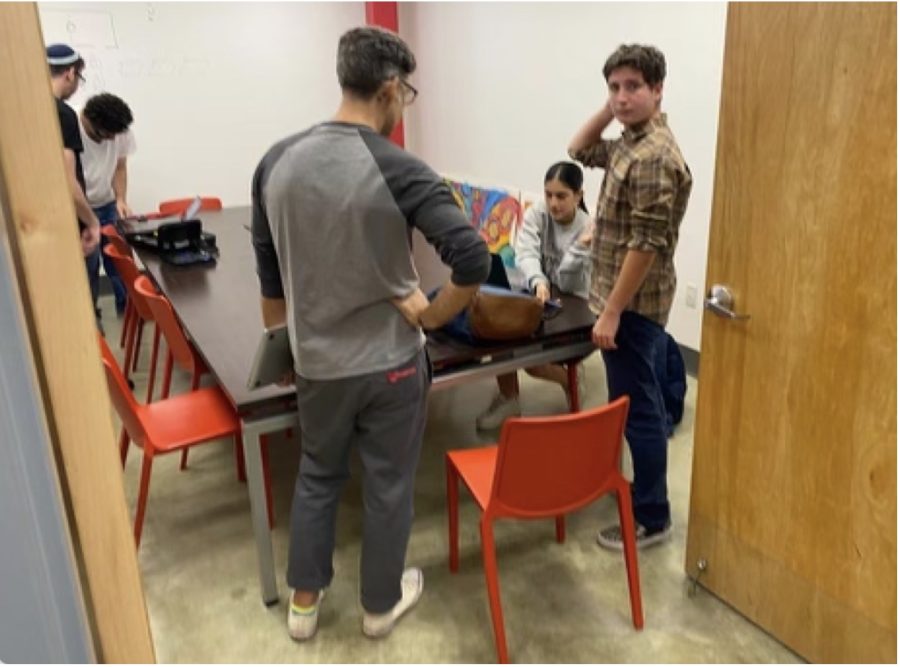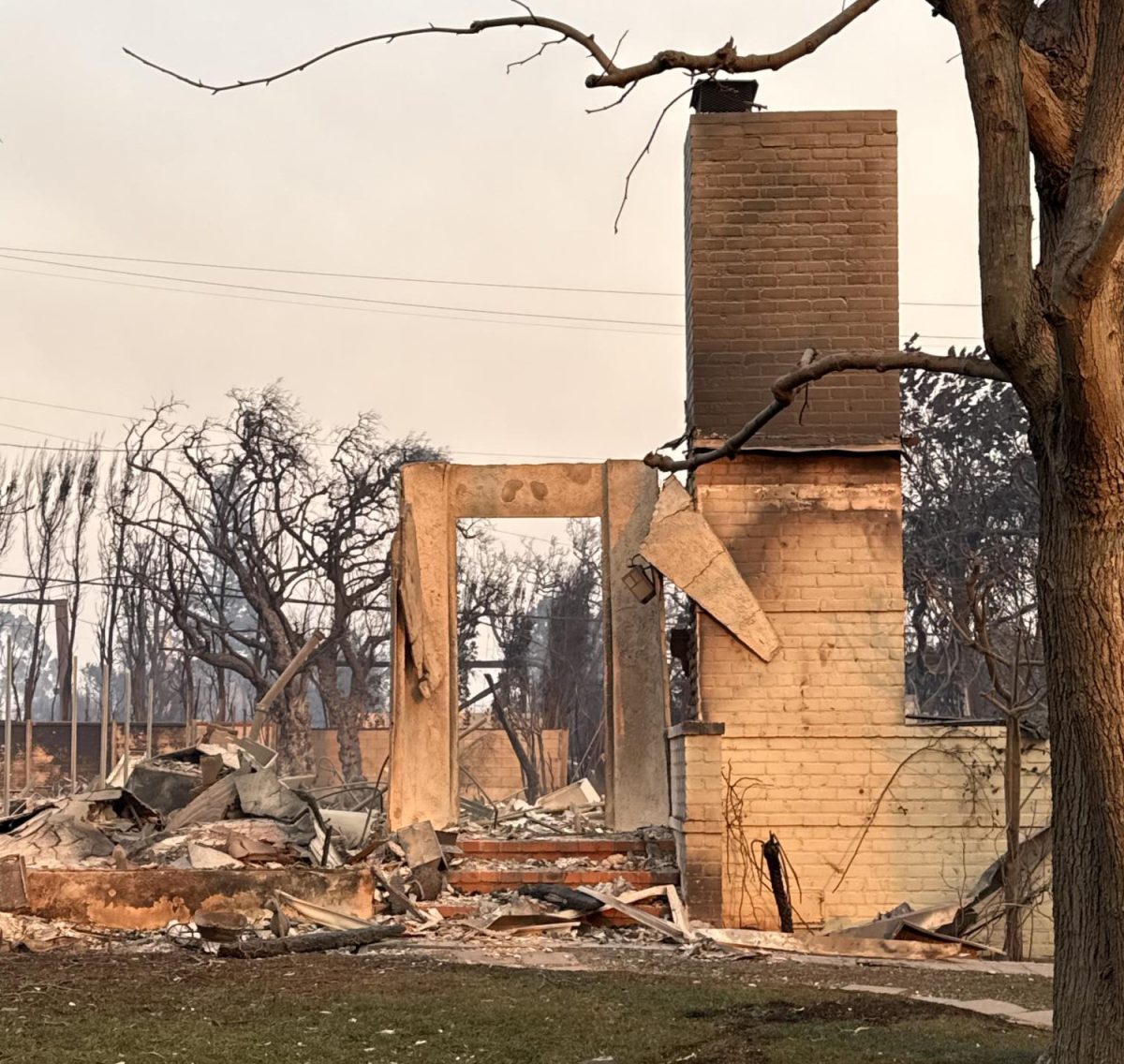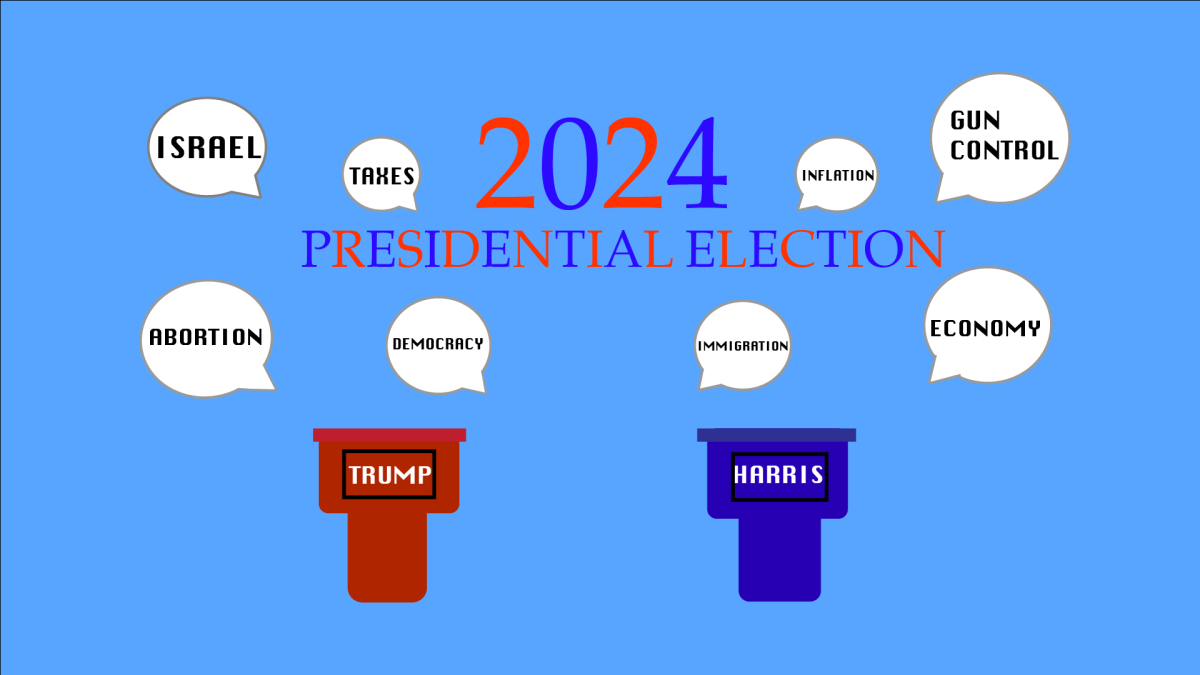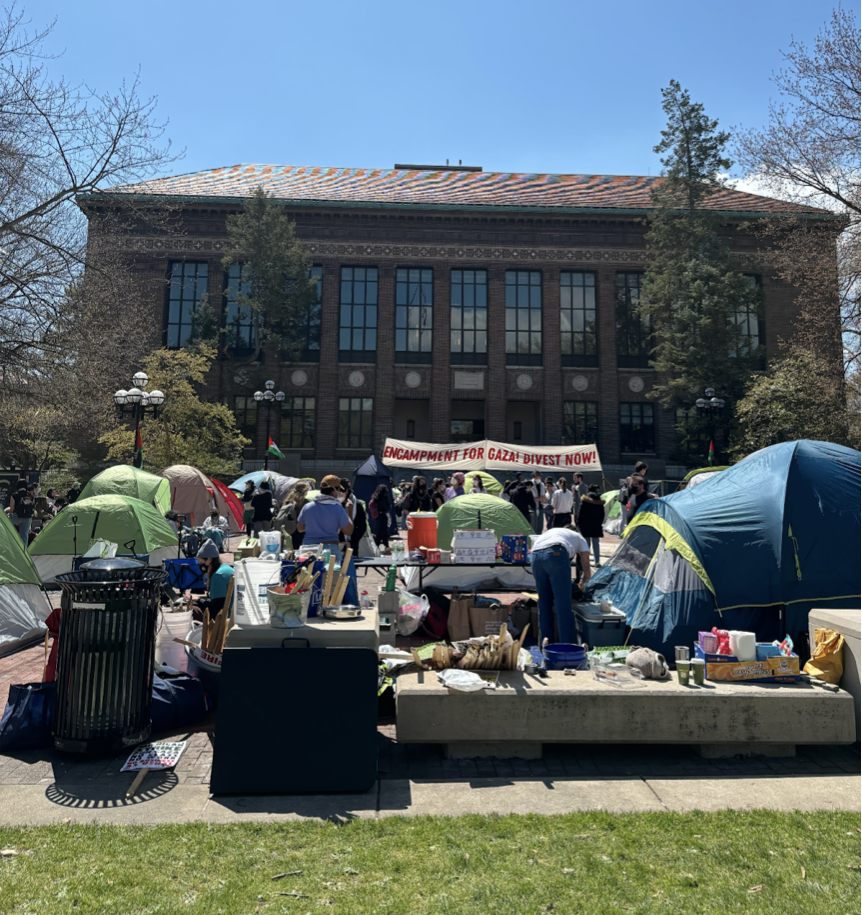Over the summer, the Daniel Pearl Foundation gave Jewish Los Angeles a chance to understand the conflict in the Middle East through the eyes of the other side. In a panel discussion hosted Aug. 12 at the Steve Allen Theater in North Hollywood, two Daniel Pearl fellows, one from Egypt and one from Pakistan, spoke about how America is viewed from abroad.
The speakers were both journalists who are working in America, sponsored and paid for by the foundation that memorializes Daniel Pearl, a Los Angeles-born Wall Street Journal reporter who was kidnapped and beheaded in Pakistan shortly after 9/11.
Aoun Sahi is of Pakistani origin, and working with the Wall Street Journal. In Pakistan, he covered issues like crime, militancy, politics, security and social issues.
Nasry Ahmed Esmat had his fellowship at the Los Angeles Times. In Cairo, he covered issues pertaining to the judicial system.
The audience, which numbered about 60, seemed to be primarily Jewish, and in fact several members of the Israeli consulate were present. Also in attendance was a member of the Turkish embassy. The evening started off with questions being asked by a moderator, Rob Eshman, the Editor-In-Chief of the Jewish journal, but as the night wore on, the speakers accepted questions from the audience.
Both speakers identified a myriad of problems in the Middle East in general, and in their own countries, ranging from the use of American aid money (which has reached into 10 digits) to the effect in their countries of the changing media role in conflicts. Both identified key problems in their countries that boiled down to a lack of education, combined with reliance on media under government control.
“In Pakistan, the literacy rate is something like 60 percent,” Aoun Sahi said. “But to be considered literate, all you have to do is sign your own name.”
He added that the only internet available in Pakistan is in English, which not everyone speaks. That means almost everyone can surf only for images, he explained.
And that’s not the only information problem.
“Whenever people are working together, no one reports it,” Mr. Esmat said. “Whenever there is a conflict, there is a lot of coverage on the topic. Controversy sells.”
“The media never tells the real story, because it doesn’t sell,” Mr. Sahi agreed.
One of the questions that was brought up concerned the mosque that may be built in New York City near Ground Zero, site of the 9/11 attacks.
“The mosque wasn’t pushed for only by Muslims,” Mr. Esmat said. “I was embarrassed, because I felt that if Americans wanted to build the mosque, it would be an olive branch, and we should do something of the same caliber to show that Islam does not embrace violence.”
“It’s been blown really out of proportion,” Mr. Sahi said. “I think that with so much controversy, we should say no and not build the mosque. Islam is against controversy.”
Mr. Sahi did, however, provide an insight into an interesting religious phenomenon in Pakistan. He said more women than before are wearing the burqua, a robe that covers them almost completely from head to toe.
“In Pakistan, no one used to wear the burqua,” Mr. Sahi said. “And then people started opposing it in the West, so people started wearing the burqua as a statement against the West.”
One thing both speakers pointed out as a concern was the use of United States aid money.
“American aid money tends to end up in the pocket of the elite, not going to the people,” Mr. Sahi said. “On the other hand, China has made very small investments — building dams, bridges, and roads — and they’re much more effective, giving only a fraction of the aid that America does. It’s effective aid that you can see. Japan helped make subways, which have Japanese flags.”
Another problem is the way such aid is perceived, noted Mr. Esmat.
“If any embassy has an agenda, it’s America, because there are political motives there,” Mr. Esmat said. “People see troops in Iraq, see the U.S. acting suspiciously, and they look to see if there are strings attached with whatever aid they give.
“The Chinese government, it discriminates against everyone, but you never get the feeling that you’re being targeted,” he added. “If you look at the aid going to Egypt, it’s a lot, but the majority of it is military aid.”
Both speakers also said that the majority of people know very little factual information about Israel or America.
“Foreign governments use Israel to distract from social issues, or the fact that we have an oppressive government – they use Israel to stay in power,” Mr. Sahi said. “Most people only know about the West from Hollywood.”
“Conspiracy theories make Jews the evil bad guys,” Mr. Esmat added. “People think the Jews want to push out the Arabs so they can have all the land they had biblically.”
“Ahmadinejad is popular in the Arab world because he can badmouth the West in everyone’s faces,” Mr. Esmat added. “Iran is playing the blame game, demonizing Israel, despite the fact that Israel has done nothing. Ahmadinejad is playing games to build authority with a public that hears nothing but propaganda.”
Regarding protests, particularly in Egypt, against the government, Mr. Esmat reported that the internet has drastically changed the playing field. As seen during last year’s protests against election results in Iran, the internet is used to record protests live, connect with other dissidents, and remain in touch with the outside world.
“Social media have changed everything about the game,” Mr. Esmat said. “People can see everything online, live, and protests can’t be stamped out completely.
According to the World Development Indicators website, only about 16 percent of Egyptian residents are internet users (http://tinyurl.com/BPEgypt ). Yet Mr. Esmat was optimistic about the role of interactive media in his country.
“Twitter and Facebook are phenomenal,” he said. “It’s not that so many people use it, but it’s the better educated people who are getting informed. Protests start on Facebook, and there was a group that tried to hold democratic elections online. It won’t count, but it’s the symbol that matters.”
“It’s different in Pakistan, because internet is only available in English,” Mr. Sahi replied. “It’s one of the reasons Pakistan is the number one consumer of porn in the world. People can’t read, but pictures are distributed as propaganda.”
As the evening wound down, both speakers were asked by a member of the audience if they had any ideas about what should be done to engender progress in the peace process.
Mr. Sahi said that though the issue of Israel would be important to any treaty with Pakistan, peace, for Pakistanis at least, would come on other terms as well. He cited the issue of Kashmir, a province between India and Pakistan that both countries have been fighting over since Pakistan’s declaration of independence from India.
“Any peace treaty with Pakistan would have to include a promise to resolve the conflict of Kashmir,” Mr. Sahi said. “But the big issue is Paslestine. If you want peace, that issue needs to be solved.”
“We need to try and combat preconceived notions about Israel and the Jews,” Mr. Esmat said. “We need to look pragmatically at peace – we need to decide to get along not because we love each other, but because we want a future for our children.”
The big thing, both speakers said, was that people needed to be better educated.
“Education, education, education,” Mr. Sahi said, driving the point home.
Both speakers said that when they returned to their home countries, they would do what they could in order to stop the spread of propaganda, and to change the perceptions held by their compatriots.
“I can’t believe how honest both of the speakers were,” one departing listener commented to another as he left the hall.

